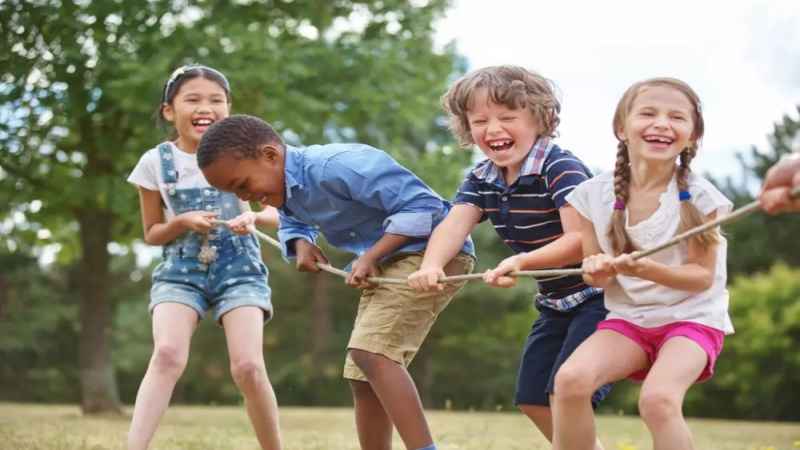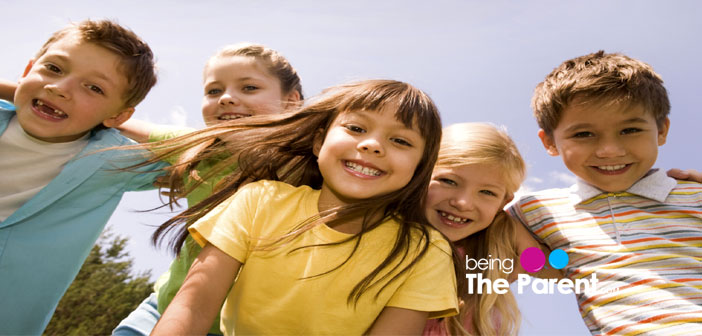
Most babies are social by nature. They love attention. They love it when people engage them in conversations. But as they grow up, we notice that some become the life and soul of a party with a big group of friends flocking around them at all times, while some others prefer to curl up with a book in their room, with hardly or very few friends.
Well, let us not be unrealistic. The “number” of friends that your child has really does not matter. It is the quality of friendship that matters. And making friends, and being a good friend, go beyond being “social” (read more about Developing Social Skills In Your Toddler). So, what are some of the skills your child needs to have to make friends?
- Good verbal skills: A child who can converse well can make friends faster
- Good interpersonal skills: Conversing well can only get one so far. The child should be able to share toys and games and be helpful to others
- Good emotional skills: Thisis abit deeper. A child who cares for his peers, shows empathy, is reasonable and is perceptive can make stronger friendships
The ability to make friends is a vital skill – not just during childhood but also something that will help them during the awkward teenage years and problematic adulthood. And fortunately, there are loads of things as parents you can do to ensure your child masters this skill. Read on.
Break The Introversion Myth In Your Child
Let us deal with the tougher herd first. Being an introvert is in no way something to be ashamed of. It is also not an excuse to not have friends. An introverted child might not be the life of the party, but he will still be able to make 1-2 friends with whom he will have a deep connection. Here is a great read on Tips to Raise an Introvert Child.
Teach Your Child To Be Polite
We mentioned before verbal skills are important. And the road to be a good conversationalist begins at a home. If you reciprocate well with your child, then they will reciprocate well when they are with their peers. Use the three magical words – please, sorry and thank you in abundance. A polite kid is always a well-liked kid. More on this here.
Be An Emotional Coach For Your Child
We can all be upset, angry and selfish. But to make good friends, and to be a good friend, you need to know how to not always put your emotions on the pedestal. Let your kids know that it is not always about them. Sometimes, they need to forgive even when they are upset, help in problem-solving even when they are angry and share even when they feel selfish. Help them be empathetic.
Develop A Sense Of Humor In Your Child
A funny child is usually a positive child and a good speaker. Children are naturally attracted to someone who cracks them up. And good news is you can help develop a sense of humor in your child. Read about it here – Developing A Sense Of Humor In Children
Understand That Your Child Will Have His Own Friendship Style
You cannot expect or force your child to behave the same way you do with your friends. Your child might or might not be a group person. He might or might not do better in one-on-one situations. Understand his style and tune into and facilitate that.

Arrange Play Dates For Your Kid
Small children at times need direction. They are clueless what to do with a peer. Unless you take control, they might just engage in parallel play. So when you arrange play dates at your home, plan few activities that the kids can do together. When they solve a puzzle together or sing a rhyme together, a bond is easily formed. Some great pointers on arranging play dates for your child here.
Deal With Friendship Woes (Or Not)
Keeping a friendship is equally or more difficult than making one. Once your child forms a friendship, there is bound to be fights and misunderstanding. Your child might get hurt enough to sulk all day around or angry enough to break the friendship. However, we strongly recommend you do not play the mediator here. Your child should independently be able to deal with such situations. That said, you can always explain to him that his friend might not have meant to hurt him and that it won’t hurt to hear the friend’s side of the story. Facilitate Peace Talks. Don’t Be The Negotiator.
Watch Out For Bullying Incidents
A bit of rough play and teasing is harmless. But it is a narrow path and it can quickly turn into bullying. If your child is the bully, then explain to him how his words and actions can hurt others. If your child is being bullied, be tactful and approach the teachers or the bully’s parents. The important aspect is to let your child understand that bullying is not OK. Read more about bullying here and tips to bully proof your child here.
Help Your Child Fit In
Give your child some practical advises to fit into his peer group. Some of them are:
- When approaching a group of kids who are playing, first watch them for some time to understand what they are doing, and then approach them with a suggestion on what role he can play in the group
- Be an active listener. Pay attention to other’s facial expression, make eye contact, and learn not to interrupt when others are talking
- When meeting a new person, share information about yourself. Do not just ask the other child questions. Introduce your child to your friendships. Nothing like walking the talk, right? Call your friends over. Let your child watch how you interact with them. You can go one step further and arrange double play dates. That is, have your friends bring their children. That way, there will be two generations of friendships brewing under one roof
While you follow all these tips, make sure you keep your expectations in check. We told before how the number of friends do not matter. Every kid cannot be the “popular kid”. And that is alright. It is important not to pressurize the child. It is even more important to ensure that your child does not feel rejected. Tell him there are many famous personalities who had a pretty event less childhood.
Happy parenting!

